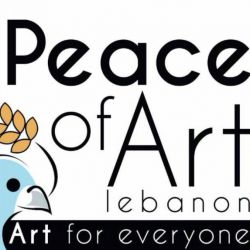Hear Us Now: Youth Voices Create Public Transparency and Strengthen Accountability in North Beqaa
This project aims to (1) bring statistical transparency to youth’s opinions, attitudes, feelings, and perceptions about social, cultural, political, and familial freedom of speech barriers within our society, and find what activities facilitate youth’s freedom of speech; (2) create discussion and widespread accountability by engaging the online and offline community, institutional stakeholders, and youth though an advocacy Call to Action based on our research findings, and (3) provide evidence that creative civic spaces are an integral part of our community and change negative attitudes, perceptions, and opinions by facilitating free speech, dialogue, and releasing enmity and tensions that have been built between our communities over decades. The project’s target audiences include: (1) parents who are affected by the divided social, cultural, and religious and sectarian segregation youth are growing up within; (2) youth who may not be aware that they have ideas or opinions they wish to express and who are not freely expressing themselves due to not having the skills, tools, or who are influenced by prejudgments, family and/or sectarian pressures, post-war mentalities, etc.; (3) community stakeholders such as teachers and school officials who have a direct influence on our future generations and the future of the region; (4) donors who would like to change their focus or thematic interventions to specific topics limiting free speech, free expression, and topics preventing our youth from enacting lasting positive change within society and culture, and (5) other nongovernmental organizations who want to help youth create social and cultural change in the region but are uncertain about the direct and indirect pressures/influences youth are facing that prevent significant change from occurring.
This research adopted a mixed methods approach, collecting both quantitative and qualitative data. The data collection phase of the project included: (1) Detailed document and literature review; (2) Surveys to understand the characteristics and opinions of the research group; (3) Key Informant Interviews (KIIs) and (4) Focus Group Discussions (FGDs). The aforementioned types of data collection assisted the research team in grasping an in-depth understanding of the research participants’ perceptions and opinions on the freedom of expression, beliefs, ideologies, self-expression, social dynamics as well as cultural barriers. The methods administered were participatory, inclusive and target group sensitive. These methods ensured that the findings were derived from a collective contribution from a wide range of target groups, triangulated and validated, and that gender considerations are integrated into the data collection and analysis methods, where relevant.

